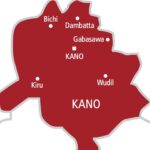Patients living with diabetes in the country have lamented that many of them are unable to access diagnosis, requisite treatments and other services because they are expensive.
Findings by Daily Trust Saturday revealed that those who could not afford the expensive treatments subsequently develop complications or die as a result.
The patients called on government at all levels and other stakeholders to make diabetes drugs free or subsidise treatment to alleviate the hardships they face.
In a statement on Thursday, the World Health Organisation (WHO) revealed that nearly 1 in 5 COVID-19 deaths in Africa were linked to diabetes. This means that 18.3 per cent of COVID-19 deaths Africa are among people with diabetes.
Statistics showed that approximately 4.3 per cent of the 200 million Nigerians (8.6 million) have diabetes.
According to an analysis of 14 African countries by the WHO, the risk of complications or deaths from COVID-19 among people with diabetes increases with age, with people in 60 years and above facing greater risks.
The organisation said that in many African countries, access to basic equipment for diagnosis and monitoring of diabetes is a challenge, especially in public and remote health facilities. There are also limited supplies of insulin and oral hypoglycaemic medicines for diabetes on the continent, while health workers are not sufficiently trained in diabetes diagnosis and care for patients.

Dr Alkali Mohammed, the President of the Diabetes Association of Nigeria (DAN), said the major challenge in the country’s health system “is out-of-pocket expenses,” as such, patients have to buy their drugs from their pockets. He said this is a major problem because most patients cannot afford the cost of treatment.
“Majority of the people, particularly in the rural areas, are not even working, so affordability of care is the major challenge for diabetes patients,” he said.
Many don’t know they have the disease
Mohammed also said that in Nigeria, about 50 per cent of patients don’t even know that they have the disease. As a result of this, by the time they come to the hospital, complications would have already set in.
He said, “That is why it is important for people to go for screening and not wait till they have symptoms of the disease.
“We also have to be serious about preventive measures because up to 80 per cent of patients with diabetes are type 2, and that is the preventable one. There is the need for lifestyle changes, such as an increase in physical activities and eating healthy diets,” he said.
Dr Matshidiso Moeti, the regional director for Africa in the WHO, said too many people were in the dark on whether they have diabetes or not.
“People with this chronic condition suffer a double blow if they are also infected with COVID-19. We must turn this around by investing in early detection, prevention and treatment,” he said.
Dr Jones Uwakwe, a consultant endocrinologist and diabetologist, Dalhatu Araf Specialist Hospital (DASH), Lafia, said treatment options include diet modification and use of drugs, such as tablets that lower blood glucose, as well as an injection, called insulin.
“Unfortunately, a significant number of persons living with diabetes in Nigeria are unable to access these treatment options due to factors such as ignorance, high cost of medications and shortage of specialists trained in the management of diabetes,’’ he said.
Patients share experiences
Oghenekaro Jones, 47, said it has not been easy caring for himself as a diabetic patient because of the money and time required.
He said it is particularly difficult for him at the height of the COVID-9 pandemic in the country because many doctors were afraid of getting close to patients.
“There is no support for diabetic patients in the country, and the drugs are very expensive; hence many people have resorted to herbal drugs,’’ he said.
He called on the government to subsidise drugs for patients if they cannot give it for free as is done for HIV patients.
Tunde Famoye, a patient resident in Lagos, said treatment for someone with other underlying illnesses is different from that of one who has only diabetes.
“Some are given oral medication only while others have to use both oral and insulin injections. I discipline myself and I am strict with my diet. So I am only on oral medication, though I am also managing high blood pressure.
“In a month, I have a budget of N12,000 to N15,000 for managing my diabetes. People who take insulin three times a day will have a higher bill.
There are the glucometer and strips to check every hour, which is an additional cost,” he said.
Another patient, Mrs Moji Adelani, who was diagnosed with diabetes in 2016, said the drugs are expensive. She said one of the drugs, which was N9,500, is now over N11,000. Another drug costs N2,500. And there is one that relaxes the muscles.
Bishop Eke Kalu, 64, has been suffering from diabetes for over three years now. He can hardly walk alone. He said that since many patients like him could not afford the very high cost of drugs, the government should establish free diabetes drug centres in various states.
Eke said he had since resorted to herbal treatment.
Another patient, Madam Glory Effiom from Cross River State, has suffered the same ailment for nearly seven years. She said, “The disease is not curable. I have applied all known prescriptions to no avail. It is important for health centres to have special units for us. We need support from the government,” she said.
The Commissioner for Health in the state, Dr Betta Edu, said diabetes would be covered under the state’s health insurance scheme so that patients don’t have to pay out of their pockets.
Stella Ofokaji, who was diagnosed with diabetes in 2014, said she eats rice only once in a week and eats lots of protein. “I have blood sugar test kits, which I use in checking my level regularly,” she said.
Alhaji Ibrahim Mamman said he has no difficulty getting drugs because his children always help.
“I also test my sugar level regularly and it has been stable,” he said.
Over 500,000 people live with the disease in Kano
In Kano, over 500,000 people live with diabetes, a Consultant Endocrinologist, Dr Abubakar Labaran Yusuf, has said.
He said that in the study conducted in 2011 in the state, the prevalence rate of the disease was around 6.3 per cent, with most of the cases among the elderly and the overweight.
He blamed the prevalence on the change in lifestyle of the people and their eating habits, which he said had shifted towards refined carbohydrates, junk and canned food which make them gain excessive weight.
Dr Yusuf, who is also a lecturer in the College of Health Sciences, Federal University, Dutse, said because of the belief in traditional medicine, many people present themselves late in hospitals after their situations have gone out of control.
With almost 20 million people in Kano State, Daily Trust Saturday learnt that there are less than 10 specialists that can manage diabetes.
“There are 6 to 8 of us that are certified endocrinologists in Kano. With the population, we feel overwhelmed but our colleagues, the general practitioners have been of great help,” he said.
He advised the public to watch their diet by taking foods that are devoid of excess carbohydrate and fats. He also advised against late presentation to hospitals, saying it reduces chances of survival.
How to tackle the disease
The Chief Consultant Physician and Pulmonologist in Gwarimpa General Hospital, Abuja, Dr Ndubuisi Onuoha, said Nigerians could only overcome diabetes if people are educated on lifestyle changes, particularly as they get older.
He said eating foods in the raw form and whole state rather than the processed or refined form is a great solution to living free from diabetes.
Onuoha urged the government to improve its interventions on bringing succour to diabetes patients.
While urging the government to create awareness on diabetes via the mass media, he said there is the need to help patients by subsidising drugs.
A medical doctor at Barau Dikko Teaching Hospital, Kaduna, Dr Usra Muktar, said diabetes treatment is available and accessible to every patient willing to present himself at any health care facility. She advised Nigerians to eat a balanced diet.

 Join Daily Trust WhatsApp Community For Quick Access To News and Happenings Around You.
Join Daily Trust WhatsApp Community For Quick Access To News and Happenings Around You.


